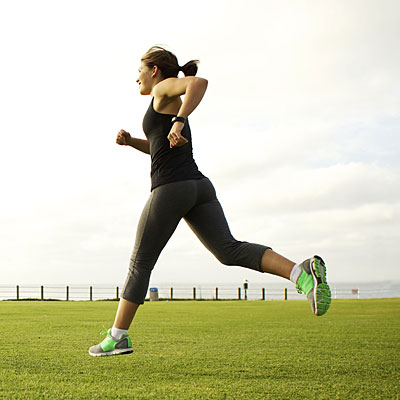1 of 12

They only do workouts they enjoy
People who love to exercise don't waste time with activities they despise. "Too often I see people who sign up to do something like running, even though they know they hate running," says Shavise Glascoe, exercise physiologist at the Johns Hopkins Weight Management Center. Start with an activity that you're interested in or already enjoy—it doesn't have to be what your neighbor said helped her lose weight or what the group-class trend of the moment is. What matters is that you like it. If you don't want to do it, you will make an excuse to skip it tonight (and tomorrow, and the next day).
RELATED: 4 Fat-Blasting Jumping Exercises
2 of 12
3 of 12
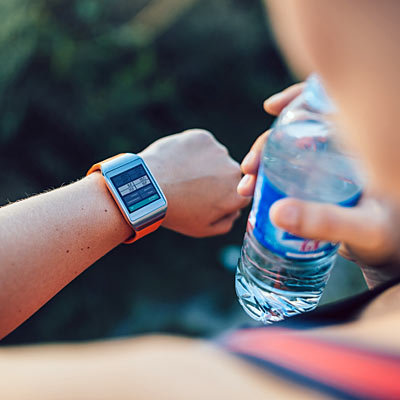
They look for feedback
Fitness fanatics often thrive on instant feedback, says Jimmy Minardi, a former professional cyclist and personal trainer in New York City and Santa Barbara, Calif. He suggests trying out a fitness tracker that measures heart rate or calories burned, like the Fitbit Charge HR ($150; amazon.com), Withings Pulse 02 ($120; amazon.com), or the Intel Basis Peak ($200, amazon.com). That real-time feedback will help you push yourself further—you'll always feel motivated to match or exceed your personal best—and take your workouts to the next level. Plus, Minardi says, you'll be more connected to your training.
3 of 12
4 of 12
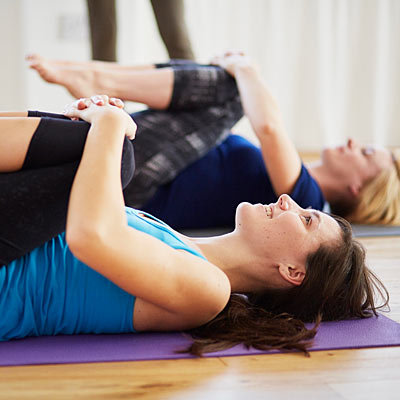
They exercise with a friend
Exercise addicts get by with a little help from their friends, says Glascoe. They're sure not to ditch their yoga buddy for an om-session even when they'd rather beeline straight home, and are excited to get out of bed for a morning run because they'll have the chance to chit-chat with their pals. Case in point: in a University of Southern California study, people said they had more fun and enjoyed working out more when they did it with a friend. Don't assume that none of your friends want to work out—you may find one who wants to get in shape alongside you. But you could also find a workout buddy by joining a local running or biking club, or signing up for a recreational sports league.
4 of 12
5 of 12

They get back to nature
When the weather outside is nasty, it's natural to want to take exercise inside. But if it's nice and bright out, bike along that lakefront path, run through your neighborhood early in the morning, or find an outdoor yoga class. "Nature makes you feel alive—and when you feel great, you are more likely to want to do the workout again," says Minardi. Besides, in one 2011 study in Environmental Science & Technology, sweating outdoors was associated with a boost of energy, more engagement in the activity, and better mental wellbeing. Go ahead—sweat, and say ahhh.
5 of 12
6 of 12

They let setbacks slide
Sometimes life gets in the way of exercise, and that's okay, says Glascoe: "Studies show that people who have wiggle room in their mindset are more likely to maintain a regular exercise routine," she says. "Prepare yourself for potential barriers and come up with a backup plan." Glascoe has her clients plan the maximum and minimum number of days they want to exercise in a week. That way, if they miss one, there’s no "I've blown it" mentality. If you have to work late and can't hit Spin, tell yourself that tomorrow you’ll get back on track.
RELATED: 5 Ways to Work Your Abs Without Crunches
6 of 12
7 of 12

They don't think about how much weight they're losing
"We seem to be more powerfully motivated when we look at the short-term, immediate benefits of exercise," says Gregory Chertok, a sport psychology consultant. Rather than focusing on the 20 pounds you want to lose (which, turns out, doesn't help us get off our butts and get moving, he says), think about the almost instantaneous extra energy you'll get with your kids, at work, or in the bedroom. And anyway, when you stop thinking about how your workouts are affecting your weight, you may actually start seeing the pounds melt away: Cornell University research suggests that framing your exercise as something other than calorie burning (like a break or "me time") can help you eat less after.
7 of 12
8 of 12
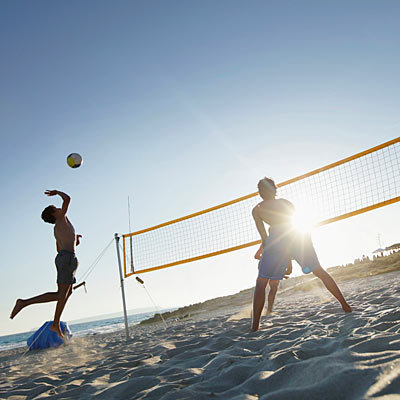
They don't care if it’s 'traditional'
Exercise is exercise—doesn't matter if it's at the gym or not. All types of activity count, so try baking your playtime into your workout time by becoming a member of the company kickball team, joining a beach volleyball league, or trying something you're curious about, like martial arts. "You're creating a lasting relationship with the activity, rather than simply showing up for classes," Minardi says. Other activities that count? Gardening, running in the backyard with your kids, and dancing (even if it's a dance party for one in your living room), adds Chertok.
RELATED: 10 Fun Ways to Get Fit Without a Gym
8 of 12
9 of 12
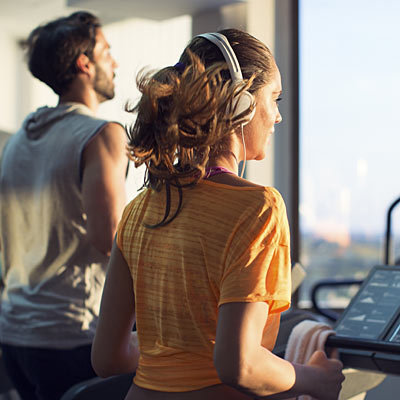
They crank up the tunes
There's a reason why you see so many people wearing earbuds at the gym: Music is a huge motivator, reveals research in the International Review of Sport and Exercise Psychology. "Use music to improve your results. People exercise longer and more vigorously to music, and it distracts them from fatigue," says Chertok. He recommends compiling a playlist of your favorite music. When you need motivation to get out the door, put your headphones on and get inspired to sweat.
9 of 12
10 of 12

They reward themselves
Your goal is to make exercise an automatic habit that you don't have to agonize over. (Do I really have to go to the gym after work today? Am I actually going to get up early for that run?) A way to reinforce the routine is to reward yourself for a job well done, says Chertok. One of his clients set up a checking account that he uses to deposit a set amount of money each week he successfully sticks to his fitness goals. And every time he misses them? He withdraws money. At the end of the month, he takes the money he saved and does something fun, like signing up for a cooking class or buying tickets for a show. You can also plan mini rewards, like stopping by your favorite coffee shop or juice bar post-workout. (Just don't go overboard on treats.) It's something to get you up and moving when you'd rather not.
10 of 12
11 of 12
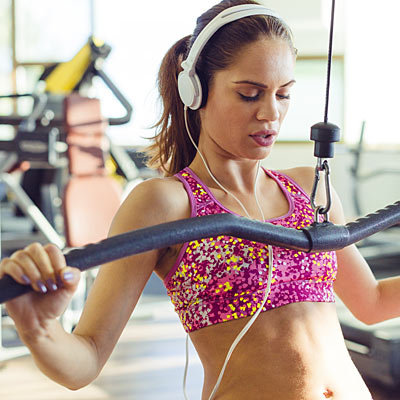
They dress the part
Truth: you don't need expensive workout gear to have a great workout. But, buying new athletic apparel may be a good motivator. "We feel better about ourselves doing something athletic when we perceive ourselves as looking more athletic," says Chertok. So switch out your old, rundown pair of shoes in favor of new kicks, pick up a new sporty headband to accessorize, or spring for a pair of running shorts if you're starting to train for your first 10K.
RELATED: 13 Sports Bras for All Body Types
11 of 12




